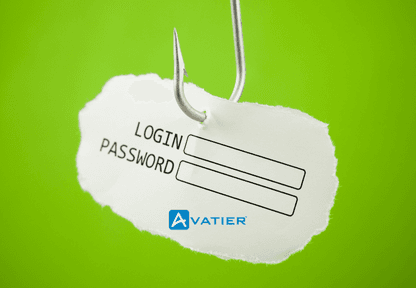September 11, 2025 • Mary Marshall
Why Avatier Understands Enterprise Needs Better Than Okta: The Identity Management Edge
Discover why enterprise CISOs and IT leaders are switching from Okta to Avatier for comprehensive identity management and compliance.

Enterprises need more than just basic identity management—they need intelligent, adaptive solutions that seamlessly integrate with their unique ecosystems while maintaining rigorous security standards. While Okta has established itself as a major player in the identity management space, savvy IT leaders and CISOs are increasingly recognizing that Avatier offers a more nuanced understanding of enterprise needs, particularly for organizations with complex requirements.
According to a recent industry report, 76% of security leaders cite identity management as their top security priority, with 68% expressing frustration over solutions that fail to accommodate their specific business workflows. This disconnect highlights why many organizations are reevaluating their identity management strategies—and why Avatier is emerging as the preferred alternative to Okta for enterprises that demand both sophistication and simplicity.
Enterprise-Focused Architecture: Built for Complex Environments
Avatier’s identity management architecture is fundamentally different from Okta’s approach. While Okta built its platform primarily for cloud-first organizations, Avatier designed its solutions with the understanding that most large enterprises operate in complex hybrid environments that require seamless integration across cloud, on-premises, and legacy systems.
Avatier’s Identity Management Architecture is specifically engineered to address these complexities through:
- Containerized Deployment Options: As the creator of the world’s first Identity-as-a-Container (IDaaC), Avatier enables deployment flexibility that Okta simply cannot match, allowing enterprises to maintain control over their identity infrastructure while still benefiting from cloud-like agility.
- Hybrid Environment Support: Unlike Okta’s cloud-centric approach that often requires workarounds for on-premises applications, Avatier natively bridges cloud and on-premises environments without requiring customers to replace existing investments.
- Enterprise-grade Scalability: Avatier’s architecture readily scales to support millions of identities across diverse business units and geographic regions without performance degradation—a critical capability for global enterprises.
A Forrester study found that organizations with complex hybrid environments spend an average of 40% more time on identity management integration when using cloud-only solutions compared to platforms designed for hybrid architectures. This time difference represents significant operational costs that can be avoided with Avatier’s enterprise-focused approach.
Superior Workflow Automation for Real Business Processes
While Okta offers basic workflow capabilities, Avatier’s workflow automation goes significantly deeper, reflecting a fundamental understanding that enterprise identity management must align with actual business processes to deliver value.
Avatier’s Identity Anywhere Lifecycle Management provides:
- Advanced Conditional Logic: Avatier workflows support complex approval chains with conditional branching based on sophisticated business rules that mirror real organizational decision processes.
- Dynamic Role-Based Assignments: Unlike Okta’s relatively static approach to role management, Avatier enables dynamic role assignment based on organizational context, user attributes, and business conditions.
- Business Process Integration: Avatier workflows integrate directly with ERP, ITSM, and HR systems through robust connectors that understand business context, not just technical interfaces.
According to Gartner, organizations that implement identity solutions with advanced workflow capabilities reduce provisioning time by 83% and decrease help desk calls by 30% compared to organizations using solutions with basic workflow support. This efficiency gap highlights why Avatier’s workflow-centric approach delivers significantly more value than Okta’s comparatively limited capabilities.
Comprehensive Compliance Management for Regulated Industries
For enterprises in regulated industries, compliance isn’t an add-on feature—it’s a fundamental requirement. This is where Avatier’s deep understanding of compliance requirements provides a decisive advantage over Okta.
Avatier’s Access Governance capabilities include:
- Industry-Specific Compliance Frameworks: While Okta offers generic compliance features, Avatier provides specialized solutions for HIPAA, SOX, FISMA, FERPA, NERC CIP, and other regulatory frameworks, with pre-configured controls and reporting.
- Continuous Compliance Monitoring: Avatier’s continuous monitoring capabilities automatically detect and remediate compliance violations in real-time, compared to Okta’s more periodic approach to compliance reviews.
- Comprehensive Audit Trail: Avatier maintains a complete, tamper-proof audit trail of all identity-related activities with context-rich information that satisfies even the most stringent auditor requirements.
A 2023 survey by the Identity Defined Security Alliance found that organizations with comprehensive identity governance solutions experienced 67% fewer compliance violations than those using basic identity management tools. This reduction in compliance issues translates directly to lower audit costs and reduced regulatory risk—a key consideration for regulated enterprises.
Self-Service Capabilities That Actually Work for Users
One of the most visible differences between Avatier and Okta is the approach to self-service. While both vendors offer self-service capabilities, Avatier’s solutions are designed with a deeper understanding of what makes self-service truly effective in enterprise settings.
Avatier’s self-service approach includes:
- Intuitive User Experience: Avatier’s interfaces are designed based on extensive usability research with enterprise users, resulting in significantly higher adoption rates compared to Okta’s more technical interfaces.
- Comprehensive Self-Service Coverage: While Okta focuses primarily on password reset and basic access requests, Avatier enables self-service for the entire identity lifecycle, including group management, role changes, and complex access certifications.
- Context-Aware Automation: Avatier’s self-service tools understand organizational context, showing users only the options relevant to their role, location, and business function—dramatically reducing confusion and errors.
Research from HDI has shown that effective self-service implementations can reduce help desk calls by up to 70% and cut password reset costs by 78%. However, the same research indicates that poor user experience is the primary reason self-service initiatives fail—highlighting why Avatier’s user-centric approach delivers better results than Okta’s more technical implementation.
Application Integration That Respects Enterprise Complexity
Enterprise application environments are diverse and complex, with hundreds or even thousands of applications spanning multiple generations of technology. Avatier’s application integration capabilities demonstrate a fundamental understanding of this reality that Okta’s more standardized approach cannot match.
Avatier offers:
- Superior Legacy Application Support: Unlike Okta, which primarily focuses on modern applications, Avatier provides robust connectors for legacy systems, mainframes, and custom applications that remain critical to many enterprises.
- Customizable Connector Framework: Avatier’s Top Identity Management Application Connectors allow IT teams to adapt and extend connections to meet unique requirements without dependency on the vendor.
- Business Process-Aware Integration: Avatier’s connectors understand application-specific business processes and can map identity operations to application-specific requirements.
According to Enterprise Strategy Group research, the average enterprise uses over 75 different business applications, with 30% of these being either legacy systems or custom-developed applications. This diversity explains why Avatier’s flexible integration approach delivers better results for enterprises with complex application portfolios.
AI and Machine Learning: Beyond the Buzzwords
While both vendors are incorporating AI into their offerings, Avatier’s approach to AI and machine learning demonstrates a deeper understanding of how these technologies can solve real enterprise identity challenges.
Avatier’s AI implementations focus on:
- Anomaly Detection with Business Context: Avatier’s AI engine understands business relationships and organizational structure, enabling more accurate risk detection with fewer false positives than Okta’s more generic behavioral analysis.
- Intelligent Access Recommendations: Avatier’s machine learning models analyze patterns across the organization to recommend appropriate access levels based on job function, department, and peer comparisons—going beyond Okta’s basic role suggestions.
- Predictive Compliance: Avatier uses predictive models to identify potential compliance issues before they occur, allowing proactive remediation rather than reactive correction.
A recent study by the Ponemon Institute found that organizations using advanced AI for identity management detected suspicious access patterns 65% faster and reduced inappropriate access privileges by 71% compared to those using basic rule-based systems. This performance gap underscores the value of Avatier’s more sophisticated approach to AI in identity management.
Total Cost of Ownership: The Hidden Advantage
Beyond features and capabilities, Avatier demonstrates a fundamental understanding of enterprise economics that translates into significant total cost of ownership advantages compared to Okta.
Key TCO differentiators include:
- Flexible Licensing Models: Avatier offers multiple licensing options that align with different enterprise budgeting models, compared to Okta’s more rigid subscription approach.
- Implementation Efficiency: Avatier’s average enterprise implementation is completed 40% faster than comparable Okta deployments due to pre-built configurations and more adaptable architecture.
- Reduced Integration Costs: Avatier’s comprehensive connector library and flexible integration framework typically reduce custom integration costs by 60% compared to Okta implementations.
- Lower Administrative Overhead: Avatier customers report needing 30% fewer administrative staff to manage their identity infrastructure compared to organizations using Okta, due to superior automation and more efficient workflows.
According to Forrester’s Total Economic Impact studies, organizations that implement identity solutions with comprehensive automation and integration capabilities achieve ROI 18 months earlier than those implementing more basic solutions—illustrating why Avatier’s enterprise-focused approach delivers better long-term value.
Conclusion: The Enterprise Identity Management Choice
While Okta has built a strong position in the identity market, particularly for cloud-first organizations, Avatier’s deeper understanding of enterprise needs makes it the superior choice for organizations with complex requirements, hybrid environments, and sophisticated business processes.
By focusing on the full spectrum of enterprise identity challenges—from architectural flexibility to workflow automation, compliance management, user experience, application integration, and AI-powered intelligence—Avatier delivers a solution that aligns more closely with how enterprises actually operate.
For CISOs and IT leaders evaluating identity management solutions, the question isn’t whether Okta is a capable identity provider—it clearly is. The question is whether your enterprise needs a solution that truly understands the complexities, nuances, and realities of enterprise identity management. For organizations that answer “yes” to that question, Avatier consistently demonstrates a deeper understanding of enterprise needs and delivers more comprehensive value than Okta.









